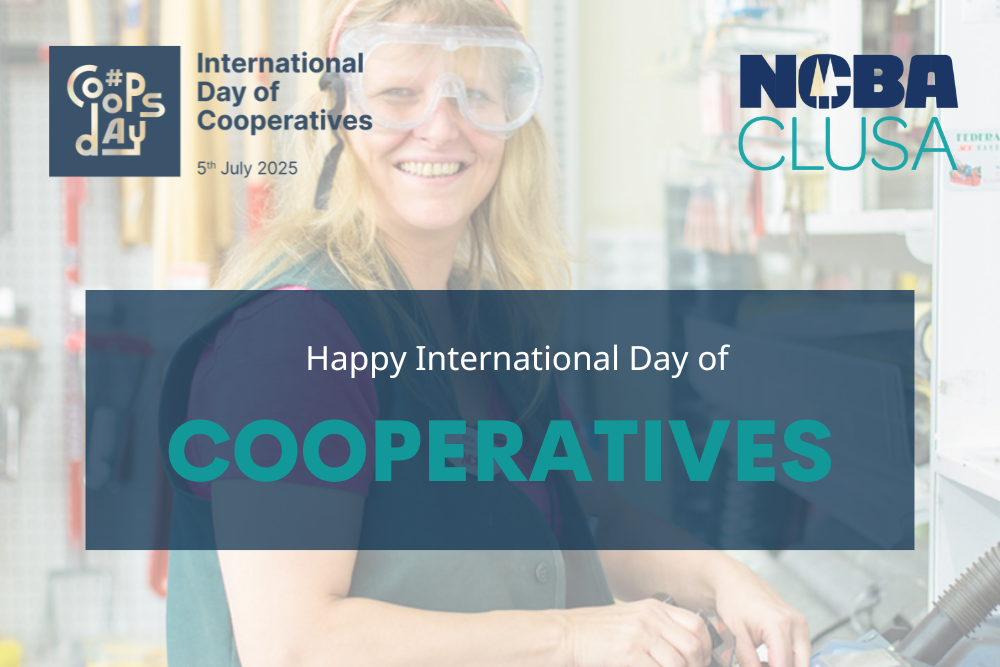Based on the results of NCBA CLUSA’s recent survey of its membership, cooperatives nationwide are active partners in building a more equitable, participatory, growing, sustainable and stable economy—factors that, according to a recent report from the Rockefeller Foundation, are integral to creating an inclusive economy.
Unveiled during this week’s Annual Membership Meeting & Virtual Town Hall, the survey results inform a current effort by NCBA CLUSA to determine a “force for good,” or rallying point, that would unite the cooperative movement’s more than 100 million members in the U.S. in advancing NCBA CLUSA’s 100-year legacy of supporting cooperatives that build a better world.
One idea gaining traction is co-ops and the inclusive economy. The Rockefeller Foundation report, which helped frame the survey, defines the inclusive economy as one that provides “expanded opportunity for more broadly shared prosperity, especially for those facing the greatest barriers to advancing their well-being.”
“That definition immediately rings a bell for what co-ops are here to do,” said Erbin Crowell, chair of the NCBA CLUSA Board of Directors’ Strategic Task Force II and Executive Director of the Neighboring Food Co-op Association.
“It moved the conversation from how we could tackle economic insecurity to how we could include people and empower them to provide economic security for themselves,” Crowell told the close to 100 NCBA CLUSA members who attended the May 2 meeting either in person or—for the first time—virtually.
This idea also seem to resonate with NCBA CLUSA members nationwide who are already contributing to a more inclusive economy. A majority (68 percent) said they build a more equitable economy by offering “fairness and equity in ownership.” The second most popular answers—each garnering more than 50 percent—were “offer fair access and equity in ownership/control to a broad community” and “offer upward mobility.”
On contributing to a more participatory economy, more than 70 percent of respondents said their co-ops help people “access/participate in markets as workers, consumers and business owners.” They also cited access to ownership and equal participation in governance as factors.
NCBA CLUSA members are also focused on growing a more inclusive economy. More than 74 percent said “democratic control based on one person/one vote rather than ownership of capital” was the biggest contributor to growth. Opportunities for good jobs and member-ownership also factored high.
A resounding 84 percent of respondents said they contribute to a more sustainable economy by “prioritizing service to members over maximization of profit.”
Regarding a more stable economy, answers were split fairly evenly between the choices (of which respondents could select more than one), but “collaborating with other co-op sectors for a more integrated and community-owned economy” edged out at 68 percent.
Using this information, NCBA CLUSA will continue to hone its vision, narrowing the best opportunities it has to make the most impact going forward. There’s also work to be done in raising the profile of cooperatives within the broader inclusive economy movement.
“People don’t necessarily recognize co-ops in the way we see them contributing, and we often have to connect the dots,” Crowell said. “In many ways, that’s an affirming process. We can see what other people prioritize and identify and amplify the role we already play there,” Crowell said.


